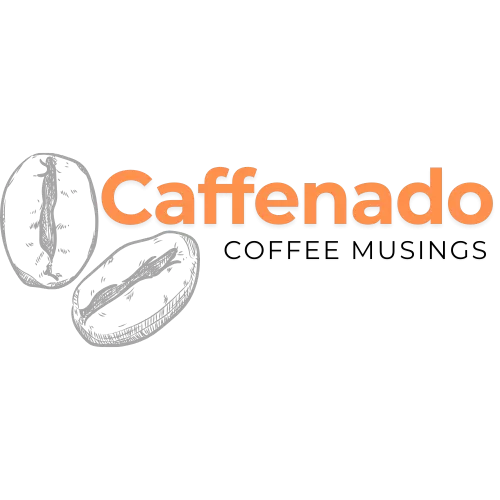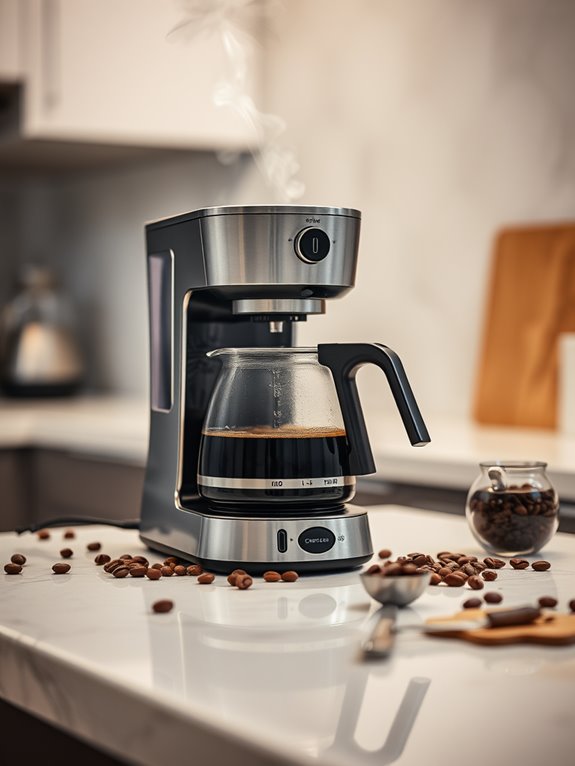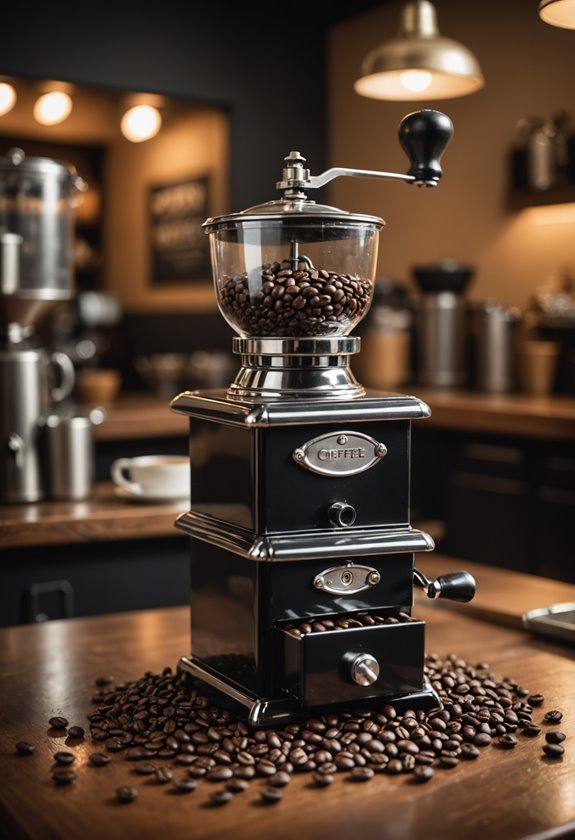How to Use Coffee Maker to Boil Water
You can't use a coffee maker to boil water effectively since it doesn't reach the 212°F needed for a rolling boil. Coffee makers heat water to about 195°F-205°F, which isn't enough to kill harmful bacteria during a boil advisory. For safe boiling, use a stove or electric kettle. Consistently clean your machine to prevent bacteria buildup. Let's investigate better alternatives and methods to guarantee your water's safe and ready for consumption.
Key Takeaways
- Coffee makers cannot boil water, as they heat to a maximum of 205°F.
- Boiling water in coffee makers can cause spills and equipment damage.
- Use a stove or kettle to boil water effectively and safely.
- Coffee makers do not ensure water safety during boil advisories.
- Follow manufacturer guidelines to avoid risking machine malfunction.
Understanding Coffee Maker Limitations
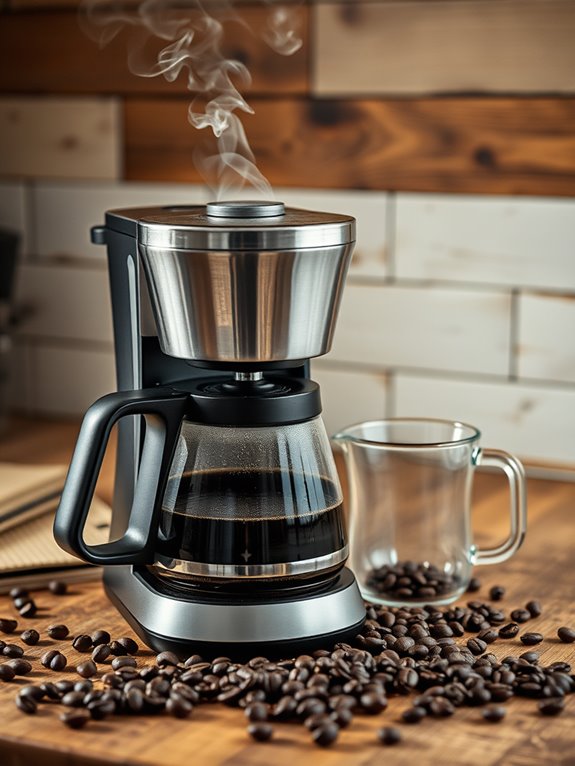
When it comes to using a coffee maker, it's vital to understand its limitations to make the most of your brewing experience.
Coffee makers heat water between 195°F and 205°F, not the 212°F needed to boil. This temperature is ideal for extracting flavors without bitterness.
Attempting to boil water in a coffee maker could lead to spills, burns, and machine damage. The heating element in coffee makers is not powerful enough to bring water to a boil, which can result in under-heated water that fails to properly sanitize.
While manual brewing methods offer more temperature control, standard coffee makers have preset heating elements.
Regular cleaning is important, as the water may not be hot enough to kill bacteria.
For boiling water, consider alternatives like electric kettles or microwaves.
Boil Advisory Compliance With Coffee Makers
During boil advisories, it's important to understand that coffee makers aren't equipped to confirm water safety.
They heat water to around 195°F to 205°F, falling short of the 212°F needed to kill bacteria. Since coffee makers can't maintain these temperatures long enough, relying on them could compromise your health.
Canadian officials and the Government of Northwest Territories advise against using them for purification. Instead, boil water on the stove for at least one minute before pouring it into the coffee maker. This step guarantees the water is safe to drink.
Let's examine these guidelines to prioritize your safety.
Safe Alternatives for Boiling Water
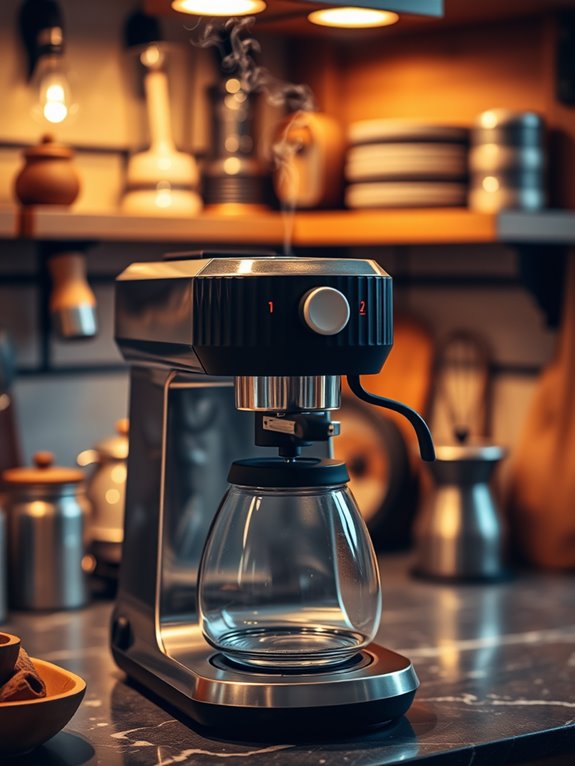
Safe alternatives for boiling water during advisories are crucial to confirm your water is germ-free. Let's investigate some options.
Boiling is a straightforward method; verify it's done for at least one minute. If you have cloudy water, filter it first. Automatic shut-off kettles work well, too.
For a more technical approach, consider using ultraviolet (UV) light disinfection. It effectively kills germs in clear water, but remember to filter cloudy water first.
Portable water filters are another option. They can remove bacteria and parasites, but not viruses, so follow up with chemical disinfection.
Always adhere to manufacturer's guidelines for ideal safety.
Risks of Using Coffee Makers to Boil Water
Although it might seem convenient, using a coffee maker to boil water comes with significant risks you should be aware of.
Most coffee makers don't reach the necessary 212°F to kill bacteria, only heating to about 195-205°F. This means the water mightn't be safe to drink.
Additionally, boiling water can cause spills, leading to burns or equipment damage. Overfilling the reservoir may result in overflow, creating electrical hazards.
The heating element isn't designed for boiling, risking malfunction or reduced lifespan.
Always follow the manufacturer's guidelines to prevent these issues and guarantee safe usage of your coffee maker.
Recommendations for Safe Water Usage
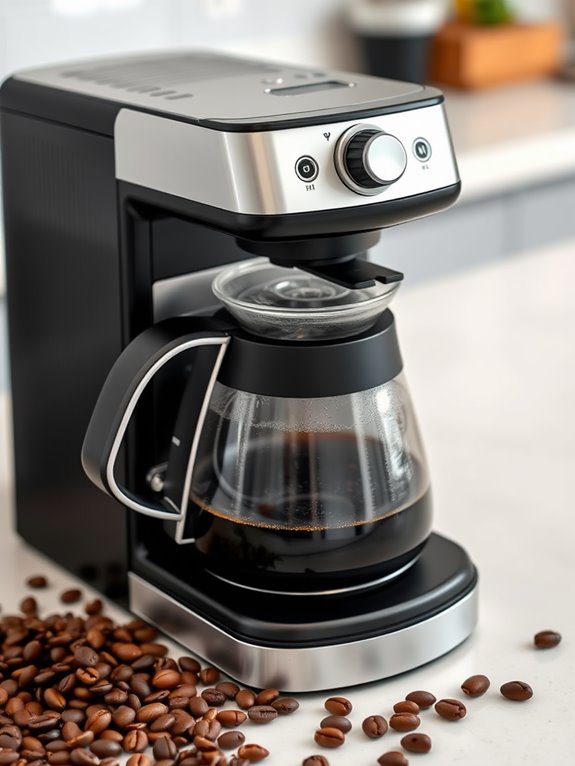
When it comes to brewing the perfect cup of coffee, water quality plays an essential role, so let's investigate some key recommendations for safe water usage.
First, choose fresh, good-tasting water to enhance flavor. Avoid overly mineralized water to prevent unwanted flavors and machine issues. Regular tap water works if it tastes pleasant; otherwise, opt for low-mineral bottled water.
Softened water isn't suitable for most coffee makers due to clogging risks. Clean your machine regularly to prevent buildup, especially with hard water.
Consider filtered or spring water for ideal taste and machine longevity. Always check water taste before brewing.
Using filtered water pitchers can provide an economical solution for improving water quality while extending your coffee maker's lifespan.
